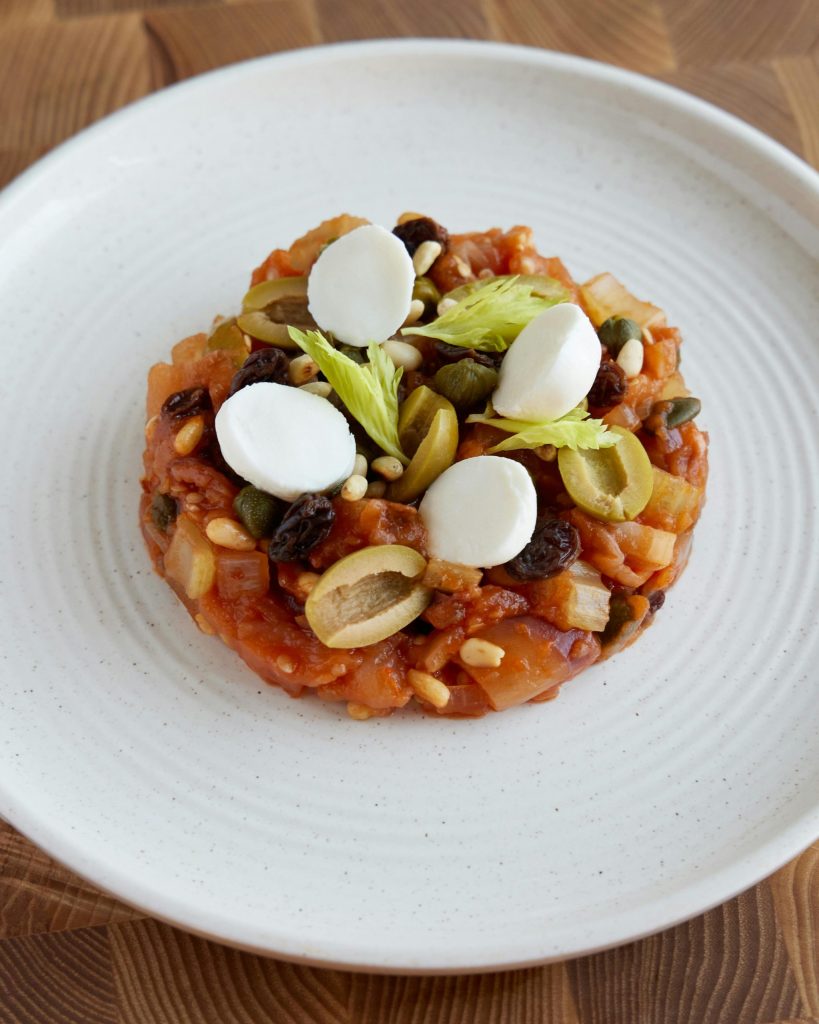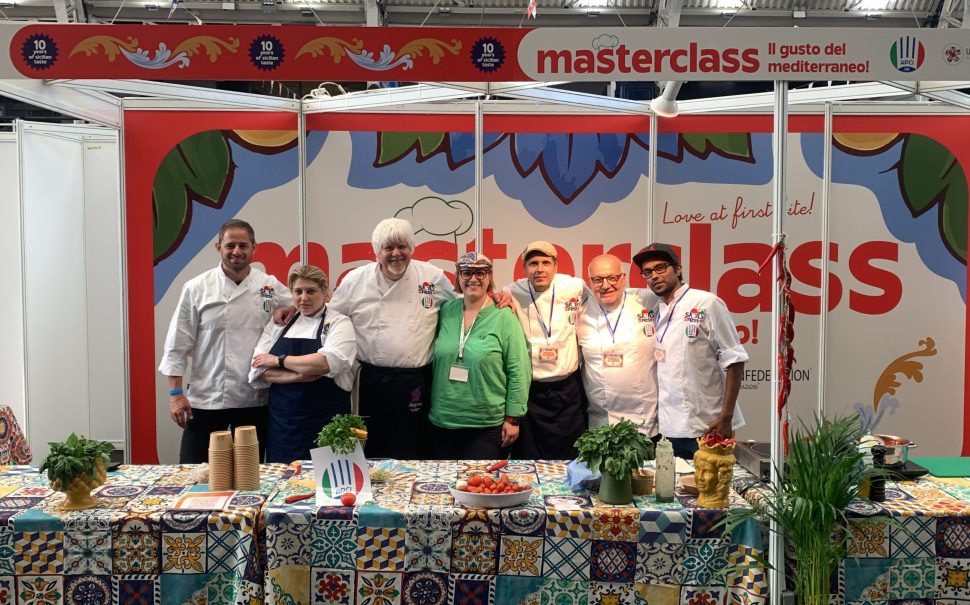A beautiful Mediterranean island which sits at the southern tip of Italy, Sicily’s cuisine tells a richer story than most history books.
From Greek influences with their colonisation of the island in the Eighth Century BC, to Roman, Arab, Norman and Spanish conquests, the rule of Sicily has switched hands countless times with each era shaping one of the most vibrant cuisines in the world.
SicilyFest, a food and culture festival held by the Association of Professional Italian Chefs (APCI) aims to celebrate this culture, share it with London residents and give them a small sense of what life is like on the island.
Traditional music hums in the background and a myriad of delicious smells drift through the air at Islington‘s Business Design Centre as chef Francesca Dassori and her colleagues speak at the tenth edition of the festival.
Dassori highlights the diversity of its influences as to what makes her so passionate about Sicilian food and, to her, no dish better symbolises this than caponata.
Dassori said: “It’s a sweet and sour dish, and it just represents Sicily – the sweetness of the people, the land, and the sun that kisses them, and the sourness of some of their history.
“So, it’s perfect. That [symbolism] is shown in so many different ways.”
Truly a shining example of the cultural fusion in Sicilian cuisine, this aubergine dish contains each thread in the long tapestry of its culinary history.
The core ingredient of aubergine originally came to the island with the Arab conquest of Sicily, along with vinegar, while tomatoes were introduced by the Spanish.
Native Mediterranean ingredients of capers and olives are likely a result of Greek and Roman influence and pair excellently, bringing balance and depth to the dish’s sweet and sour profile.

For chef Andrea Jeriri, the only native Sicilian in the group, cooking and food have been a massive part of his life since childhood.
Talking about his experience of growing up in Sicily gives a feeling for the atmosphere the festival strives to emulate.
Jeriri said: “[In Sicily] there is no Sunday if you don’t [meet] your parents.
“It doesn’t matter where they live – [everyone is] meeting at grandma’s house and sitting, that’s the staple.
“Four people, ten people – that house will be full of parents and friends every Sunday.
“You end up with two or three starters, three mains… [It’s a] three to four-hour meal.”
Talking with the chefs, it’s clear their outlook on food could be adopted as a philosophy for life.
They preach connection to nature, simplicity, quality and the importance of experimentation as the core tenets of this belief system.
Beyond its fundamental function though, food is much more than sustenance, as summed up by chef Maurizio Brugnoli.
He said: “Cooking is a form of love.
“I put my love inside that dish, and I want people to feel the level of positivity I’m trying to put in that dish in order to achieve a great flavour.
“Not for me, but for them to enjoy.”
Guided by this philosophy, Dassori founded the APCI in London, and it is an ethos which clearly shines through in the pride every cook brings to preparing and sharing their dishes.
At her annual SicilyFest, visitors are spoiled for choice, with stalls serving hot meals and a vast selection of traditional meats, wines, cheeses, sauces, and desserts.
More information on the APCI and next year’s edition of SicilyFest can be found at the festival’s website and the APCI website, on their Instagram, or by emailing [email protected].
Feature image: Fionnán Morrin





Join the discussion